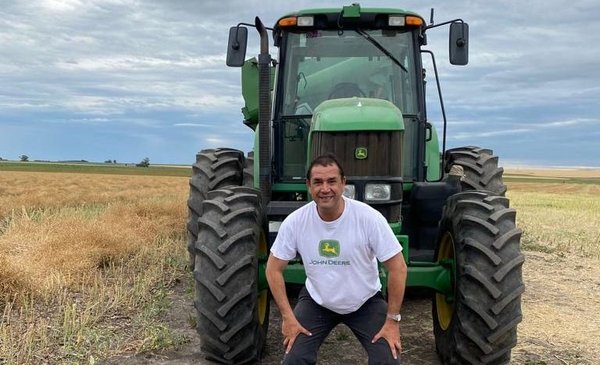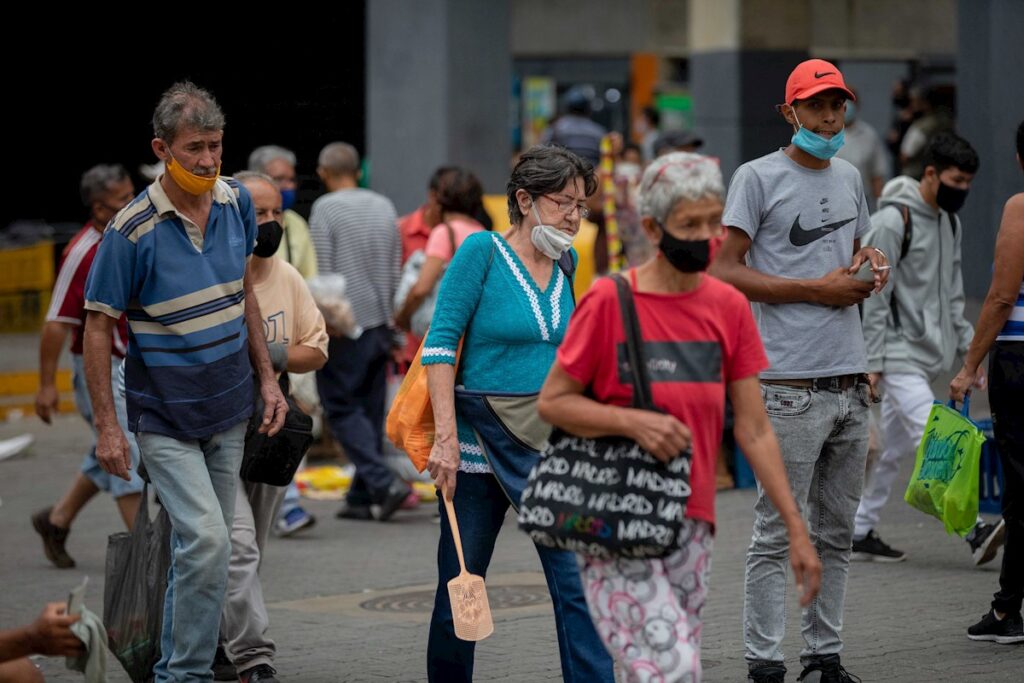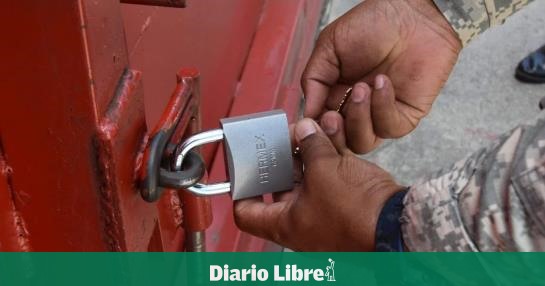The interview of The Observer producer Sebastián Da Silva was going to be face to face, but this time it was not possible. It happens that he is in the middle of the harvest and planting season and that almost always keeps him away from the capital. The conversation was, then, from cell phone to cell phone, with the also senator of the Republic in his truck -a tool that defines it as his second office-, parked on the side of a road in one more transfer, this time from a field in Mariscala towards another in Cerro Largo.
How do you alternate your activities as producer and legislator?
My leave without pay began, I go from field to field, working and enjoying it, I only stop to go to Montevideo on Thursdays to preside over the Livestock Commission, which for me is something very important. We do agriculture – Da Silva is the CEO of the Don Augusto agricultural company – in fields of eight departments of the country, between owned and managed areas.
And how are the activities presented in the farms?
A man who knew a lot about the subject told me that in life we farmers have four harvests to die for, two in which you melt and two exceptional, this is one of the exceptional ones and to get the most out of it you have to be very close to the harvesting platforms and planters.
Grain prices increased, also costs, how good is the moment?
The activity in the field has a continuity and the courage is renewed every six months. I think the stars aligned on this occasion. One goes to the soybean plants and sees three grains in the beans and that explains the jump up in relation to what one could have estimated. When I traveled around the country to explain the Law of Urgent Consideration (LUC), I was looking at the crops and I was getting an idea that we were facing a harvest and today the yields confirm that we are probably facing the best soybean harvest in the history of the Uruguay.
What yields did you observe in the last farm where you threshed?
We are above 3,000 kilos per hectare from Cerro Largo to Colonia.
Good yields in the farms with soybeans.
Is everything okay then?
No, there are challenges, for example in the winter crops that we are planting, because now all that increase in costs will be expressed much more. When one crosses this soybean crop that we are raising, you will have seen that there was a roller coaster, because in January the crop was dying due to the drought and then everything improved, with a filling of laboratory grains, from greenhouses. The first thing to do, when everything happens as it is now, is to enjoy the harvest. Then you have to assume that a good harvest, like this one, has to serve for structural improvements within the companies, both to lower debt and to make investments. You have to open your eyes and make all the expenses that have to be done before the end of the financial year. It is necessary to activate all the Comap plans –Commission for the Application of the Investment Law– that can be done. The biggest challenge facing the countryside, in agriculture and also in livestock, is to continue to be the great engine of the national economy, but also if the countryside always spilled six times over to the rest of society, now it has to spill eight or nine times and I think we are in a position to do so.
“That they tell me that I am the senator of the field is a great pride”
How do you feel when you are designated as “the senator of the field”?
Being told that I am the senator of the field is a great pride. The stigma of the agricultural producer is a very urban stigma. Generally, in the democracies of countries that are strong in rural production –such as Argentina, the United States, Canada or France– there are legislators who better interpret the reality of the countryside, despite the fact that they have as a great shortcoming that they do not generate great electoral weight in this regard. That is why there are not many legislators who want to interpret that reality. That doesn’t worry me, I like to be authentic, I like to convey the truth.
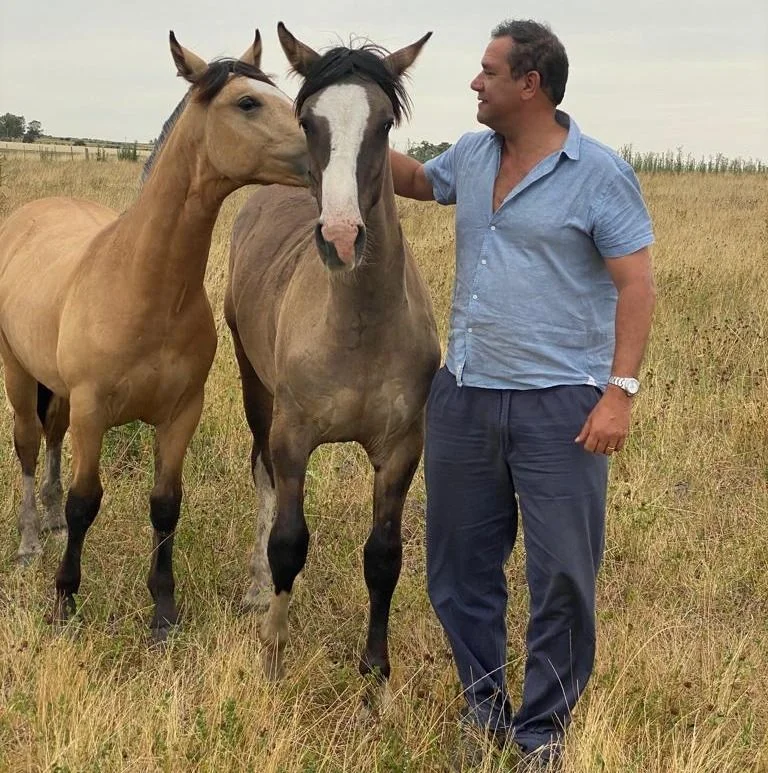
Horses, one of his passions.
In April, he assumed the presidency of the Livestock Commission for one year. What goals have you set?
Many. My idea is that the Livestock Commission is much more involved in productive issues and not so much in protocol. I have the challenge that some colleagues accompany me on these tours that I do.
Legislators from your party or from the rest of the parties, are you talking about legislators who can be defined as more citizens than camperos?
of all When one listens to the speeches of the PIT-CNT, like those of May 1, one hears some nonsense; you have to teach. You have to take these people to see what a soybean farm is, so that they can talk with the farmer, with the dust collector, with the machinery contractor, with the one who leases the field, with the truckers who wait in line to load and download. In some speeches in the city there is a lot of ignorance, but there is also a lot of bad milk. As president of the Livestock Commission, in addition to dealing legislatively with some issues, I am going to try to bring rurality to the Senate, something in which from the mouth to the outside everyone agrees, but that is not fulfilled. We are going to pass out an agenda of activities so that the members of the commission can be there, so that they can learn. Rurality has no political party, if our passage through the government has as a legacy a country with more rurality, we will have helped to better understand the DNA of Uruguay and for that it is essential to teach at all times.
How would you define how Uruguay is today?
I have a clue about that. In 1982 Uruguay was founded and so was my family. In 2022, again. Now, reaching 50 years old, and it is something that we always talk about with the President of the Republic -Luis Lacalle Pou- who is my age, one of the challenges generationally speaking is to prevent the prophecy from being fulfilled that in Uruguay every 20 years we melt. We are in 2022 and when the pandemic started (due to covid) all the alarms went off. We are passing 2022 without that prophecy fulfilled. That’s why every time we see a big drop in the dollar, every time we see some comfort zone on handling the exchange rate issue, we remember and alert. Uruguay, once the anxiety caused by the pandemic and the war in Europe is over, will have a clear horizon. Not melting every 20 years is on the agenda, because all of us who are in our 50s remember well the scars left by the crises of 1982 and 2022, we saw those that our parents suffered and those that we suffered, there were some Uruguay shattered. And that makes a lot of noise. When this government took office, one of the talks we had with Luis (Lacalle Pou) was about how we should be part of the generation that prevents the country from being melted down every 20 years. I feel that we are achieving it, with difficulties of course, but I feel that this 20-year cycle has arrived and Uruguay is doing well.
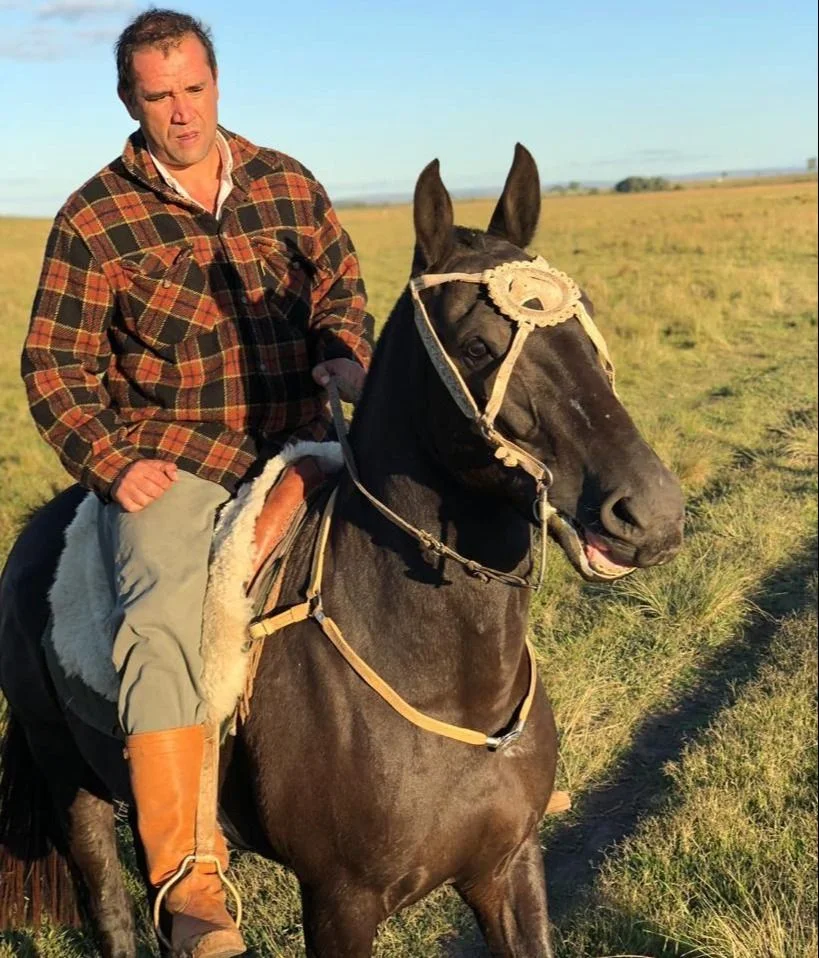
Da Silva spoke about his goals for the Livestock Commission.
There will be several, but of the goals that you have set for this management as president of the Livestock Commission, which ones would you highlight?
We have the issue of dogs, it is one of the great challenges pending resolution. Some legislative solution must be found and we are working on that. There are solutions through legislation and others that must come from another side, such as insurance for sheepfolds. Another issue is that of the agrarian schools of the UTU, We are presenting a bill because I want the graduates of those schools to have priority when it comes to access to the National Institute of Colonization properties., that does require a legislative solution and we are going to work on that. You also have to keep a tight rein on other productive issues, but not necessarily for the field more laws is better, if you push me I even think that we are over-legislatedwe have a context in which we must give content to the laws.
How do you like what you see these days when you walk past a currency exchange and see the board with a dollar closer to $40 than $45?
There is a reality fact, we are, if you will, slaves of our own business, soybeans are going to give the country a surprising foreign exchange income, more than US$ 2,000 million, the highest in history for this business. On the issue of the value of the dollar, what cannot be is an application of the same recipe applied by (Luis) Mosca, (Ignacio) De Posadas or (Danilo) Astori. That cannot be the solution. We went from the health pandemic to the inflationary pandemic, the world’s economies debate about it, about how currencies lose value. Uruguay needs a consensus on what it is, an agro-exporting country, because that is what Uruguay is. The exchange rate must not hinder this agro-export flow and for that the exchange rate cannot be delayed and that is what we are working on. Every time the dollar falls, I call Diego Labat – president of the Central Bank of Uruguay – and I will continue to do so. Inflation is a problem, there were measures by the Central Bank, but the recipe to solve inflation cannot be to lower the exchange rate.
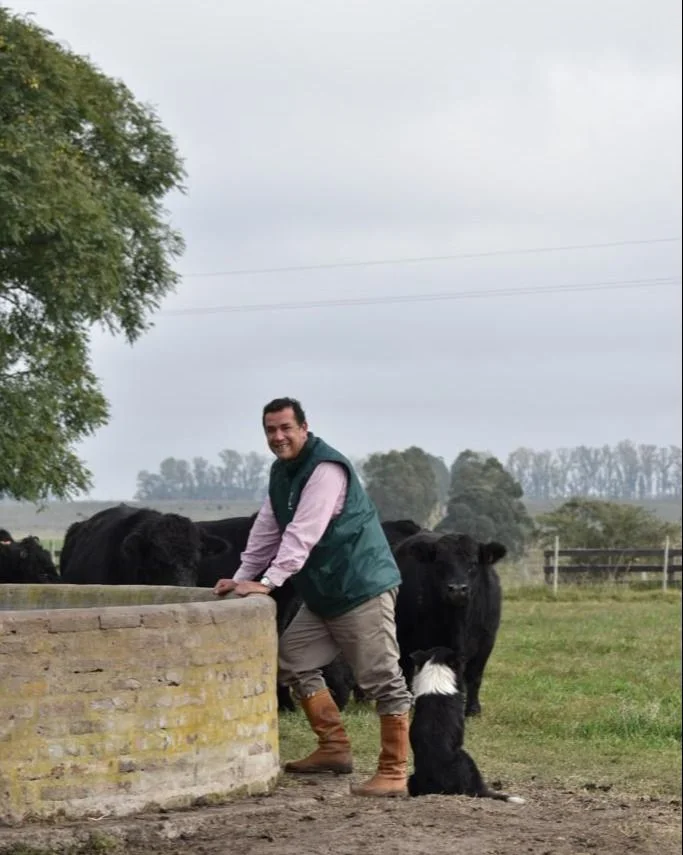
Senator Da Silva assumed the presidency of the Livestock Commission in the Senate.
